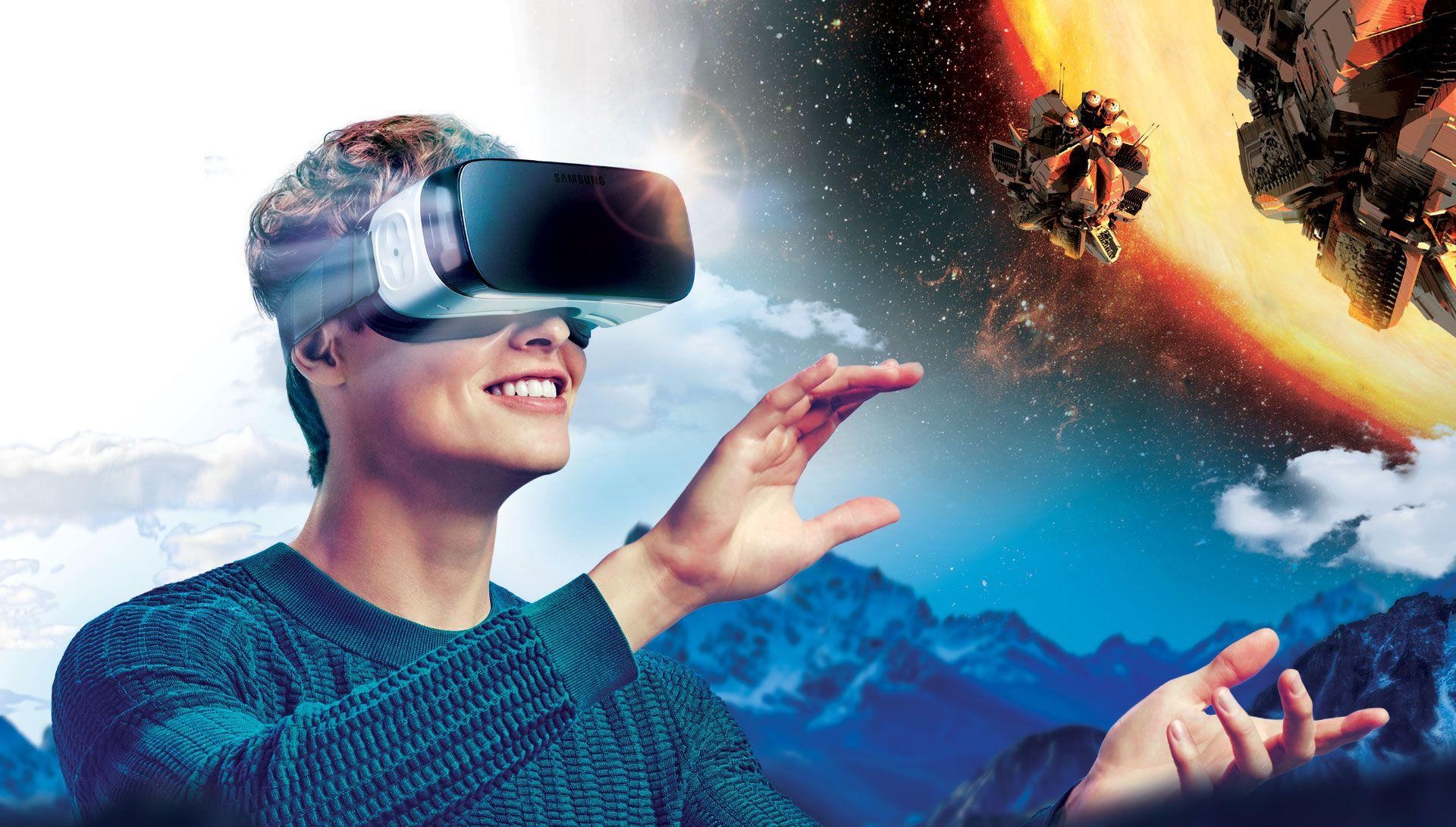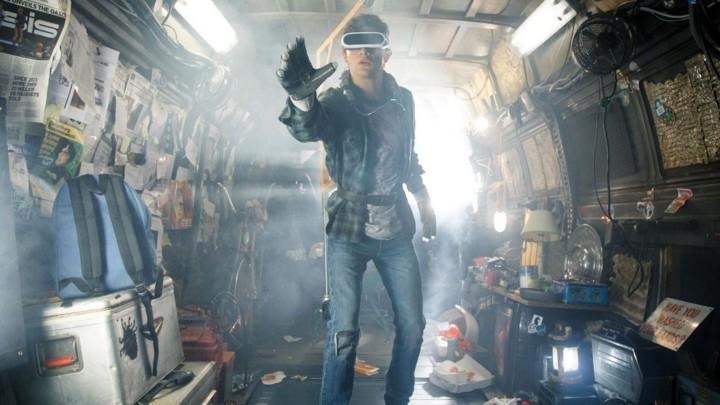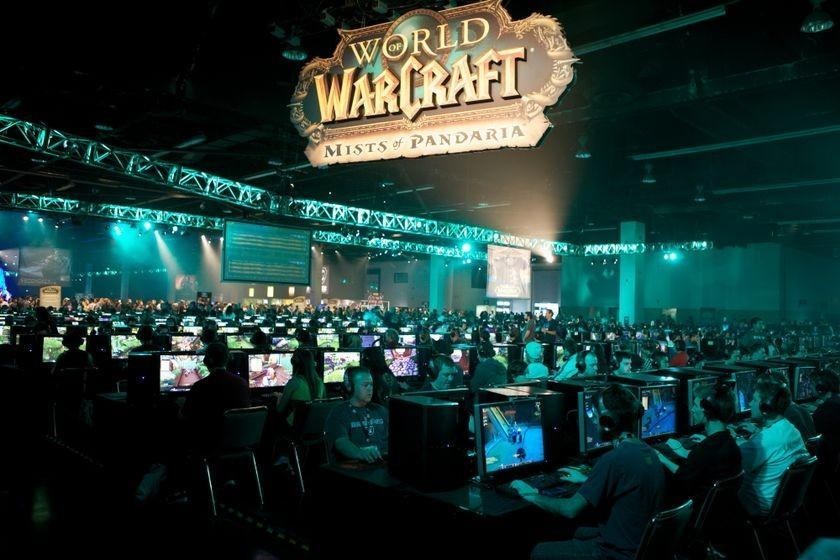
Even the rich cry. It happens, as in the famous Mexican telenovela, that a misunderstood billionaire is left holding the bag. A proponent of hyper-technological progress, Mark Zuckerberg[1], is abandoned by investors. The dystopian vision of the project and a lack of clarity drive away bored users and investors who no longer believe in the idea. And billions of dollars go with them. Accomplice to the global economic slowdown, skyrocketing inflation, investors are now paying more attention to costs.
Poor Zuckerberg finds himself with only 36 billion in assets[2]. Trying to create the Metaverse, the Reality Labs division[3], responsible for the efforts invested in the creation of a virtual reality and augmented reality[4] of Meta (the holding company that controls Facebook and Instagram, WhatsApp, the virtual reality platform Oculus and much more[5]), lost $9.4 billion this year. Meta’s share price peaked on 7 September 2021, bringing Zuckerberg’s fortune to USD 136.4 billion. Since then, however, the share price has plummeted 74% and Zuckerberg has lost $100 billion, almost three quarters of his fortune[6]. At the end of September, the company froze hiring and the CEO announced imminent layoffs[7].
The origins of the Metaverse

Meta develops avatars that mimic appearance: customisable, change hair, clothes and more[8]
What is the Metaverse? It is a noun loaded with meanings. Some relate to economic aspects, others to technology, cognitive ramifications, social implications[9]. The word (as well as ‘cryptocurrency’) comes from the books of science fiction writer Neal Stephenson[10]: it is an immense immersive space that can be accessed via PCs, game consoles and even phones. Technologies include virtual reality (VR), or persistent virtual worlds that continue to exist even when you are not playing, and augmented reality (AR), which combines aspects of digital and physical worlds. To access such spaces, expensive visors are used that cover the eyes, excluding the perception of external reality[11]. To this end, in 2014, Zuckerberg’s company bought Oculus VR for two billion dollars[12].
The Metaverse is much more than a virtual reality game in which to have fun, have exciting experiences and socialise. Just imagine the new economic system on which it will be based, and its implications: a hybrid environment in which the boundaries between physical and virtual reality will be almost non-existent, thus aligning with the digital revolution, which sees the online and offline dimensions of our life experiences, including work, integrate[13]. And there will be no single Metaverse, as in the case of the ‘Internet’. Platforms like Meta’s Horizon Worlds[14] and Microsoft’s Mesh[15] will not interact with each other, being separate virtual reality applications[16].
The actions people perform in the Metaverse have repercussions in real life: the work one does for one’s company while immersed in the Metaverse, as well as the interpersonal relationships that arise in this parallel universe, become reality. Together with the actions performed in the real world, they contribute to building one’s reputation. Like the Internet, the Metaverse will be accessible to everyone free of charge (provided one possesses the necessary technology to access it) and everyone will be able to create their own virtual spaces and avatars, giving rise to an ever-expanding universe. As in the case of the Internet, however, a few large multinationals will own and control the largest portions of it[17].
Despite the scepticism of many, the ultramillionaire companies will not sit back and watch the roulette of the future without putting some chips on the new emerging technology. While Instagram and WhatsApp continue to grow and enjoy a good image, Facebook is under the scrutiny of the press and governments[18], especially because of the Cambridge Analytica scandal[19] and its meddling in the US elections[20]. Facebook is a product in its twilight years, long past its prime and no longer part of the interests of the younger generation[21]. The new privacy rules decided by Apple on iPhones[22] have led to a reduction in revenues of almost USD 10 billion for Facebook, Snapchat[23] , Twitter[24]and YouTube[25] – this according to the advertising company Lotame[26] , quoted by the Financial Times[27].
The new settings make it more difficult to track users while they are using apps, resulting in the inability to show them personalised advertisements, which are the most profitable. To this end, Apple has introduced a system, which is called App Tracking Transparency (ATT)[28], which is causing much protest – especially from Facebook, which bases a large part of its revenues on online advertising[29]. Separating one’s name from that of the company and investing in virtual reality and digital environments is the most logical response: it allows one to reorganise priorities and invest only in products that promise better future performance[30].

The Metaverse according to Mark Zuckerberg and Meta[31]
As happened to the owner of Meta, other companies have also been sparked off: Satya Nadella[32], president and CEO of Microsoft, claims that[33] the Metaverse is the future of the Internet[34]. Yet so little time has passed since the term World Wide Web already aroused distrust… The term Metaverse already existed: Neal Stephenson invented it in 1992 in his post-cyberpunk novel ‘Snow Crash’[35]. The title derives from the malfunctioning of the first Apple: a particular state of theirs that allows them to see the heart of the system after causing an irreversible error within them[36]. In the book, the Metaverse is a 3D virtual reality, superimposed and integrated with the physical world, in which people move through their avatars, i.e. digital, three-dimensional representations of themselves. An idea taken up in two other successful novels, ‘Neuromancer’ and ‘Ready Player One’.
Neuromancer and Ready Player One

A frame from the film ‘Ready Player One’ by Steven Spielberg (2018)[37]
Neuromancer was written in 1984[38] by William Gibson[39] at a time when the personal computer was beginning to make its way into private homes. Gibson wrote it on an antiquated Hermes manual portable typewriter from 1937 and bought a computer with the first earnings from the book’s royalties. In 1984, the Internet recently acquired his name as a generic pseudonym for the[40] Arpanet system[41]. It competes with other computer networks, such as[42] Bitnet (a low-cost, low-speed network started in the City University of New York[43] ) and Usenet (a news exchange protocol[44]).
Most people are unaware of the potential of networked computing. Gibson’s book is prophetic. By catapulting directly into a computerised virtual reality[45], it surpasses any notion of the World Wide Web[46], i.e. the great worldwide web created in 1989 at CERN in Geneva[47], the huge particle physics laboratory in Switzerland, which is what we all use today. A British CERN scientist, Tim Berners-Lee[48], using a NeXT computer designed by Steve Jobs[49], publishes the first website, which describes the Web and how to use it[50]. Gibson’s book was the inspiration for the television series The Peripheral[51] currently being broadcast on the Amazon platform. Compared to Ernest Cline’s book, Ready Player One (2011)[52] , it has a more direct slant, does not make pop references and the fictional universe it shows is based on a projection of the reality of the early 1990s[53].
The book describes in detail what the Metaverse will be like: a network of interconnected virtual worlds in which users can experience wearing visors and haptic gloves, within which they interact with other users, buy digital objects and perform entertainment activities in digitally reconstructed immersive contexts[54]. As with Neuromancer, this trendy concept is summed up in a film: in 2018, Steven Spielberg[55] turns Ernest Cline’s novel into a roller coaster for the cinema[56]. The film warns of the dangers of such an immersive alternate reality, but as the pandemic with virtual concerts and live streaming has shown, nothing replaces real-life experiences.
Yet the Metaverse is much more than just a passing fad: the digital space is useful for everyone. The proof is that companies like Adidas, Nike and Warner Music are investing heavily in projects related to the Metaverse[57]. Things are advancing fast: many people still associate the Metaverse with Facebook, but the forerunners Second Life and World of Warcraft, which are a real step forward in terms of technology and social analysis, created a virtual world almost two decades ago[58].
Second Life and World of Warcraft

The third life of Second Life will be in the Metaverse, according to Philip Rosedale[59]
Second Life, the three-dimensional platform that became famous in the early 2000s, is to be reborn in the Metaverse[60]. The brainchild of Linden Lab founder[61] Philip Rosedale[62], Second Life was launched on 23 June 2003, but the beginning of its development dates back to the late 1990s. The residents of Second Life, as users are called, have no designated goal and there are no traditional game mechanics or rules in place[63]. They build their lives and relationships by following only their own inclinations and the results of interactions with other avatars.
The most innovative aspect of Second Life is that residents can do almost everything people do in real life: watch movies, listen to music, play games, go to parties, buy or sell things, and create new content for the world, be it objects or buildings. In fact, most of the content, landmarks and even animations in the world are created by residents. Moreover, economic activity is not limited to buying and selling objects[64]. You can buy or sell real estate and become a millionaire in real life, as happened for Anshe Chung[65] , a real estate entrepreneur in the simulated world of Second Life. She became the first virtual millionaire, i.e. someone whose holdings in a fictitious world are legally convertible into real US currency. Chung, alias Ailin Graef, is a former teacher who says she was born and raised in Hubei, China. She is now a German citizen[66].
Second Life focuses on social interaction, user-generated content and user freedom. As such, the virtual world is much more related to social media than to the video game industry. However, Second Life has often been considered a video game, as it predates many of the major social platforms. What really sets it apart is not only the freedom of its residents to roam the world and interact with each other, but also its thriving global economy and the richness and imagination of user-generated content[67]. A virtual world in which real money circulates.
Linden Lab announced last month the spin-off of its financial engine Tilia[68]. It was created for game developers, virtual worlds and mobile applications, and handles payment processing to creators, in-game transactions, converting tokens, i.e. tokens, in the world into fiat currency, i.e. legal tender paper currencies – including the dollar, which serves as the backbone of any functioning virtual economy. For the past seven years, Tilia has been running a $650 million business[69]. Its main strategic partner is JP Morgan, the world’s largest bank[70].
Founded by Linden Labs to economically power Second Life, Tilia has been transformed to enable it to adapt to the potential size of the alleged Metaverse[71]. And it doesn’t stop there. Linden Labs recently reached a commercial agreement with comic book publisher Zenescope Entertainment[72] , in collaboration with leading digital licensing agency, Epik[73] , to bring the Zenescope Metaverse to life within Second Life[74] : fans can interact and play as some of the classic characters made popular by Zenescope’s comics and graphic novels, acting out scenarios and following different storylines within a virtual 3D online world[75]. No other has so far been as successful as Second Life, which will certainly play an important role in the future of the Metaverse[76].

Ailin Graef, alias Anshe Chung, became a millionaire by selling virtual real estate on Second Life. She has also been called the ‘Rockefeller of Second Life’[77]
Not everything that happens in the Metaverse is new. What matters is that virtual worlds are places of social interaction beyond the parameters set by developers, and this kind of entertainment was already the basis of MMOs (Mass Online Multiplayer[78]) 25 years ago. World of Warcraft and Second Life are its most successful products. Not to be unprepared, Microsoft[79] bought Activision Blizzard[80], the video game production company of the Call of Duty series, StarCraft, Guitar Hero, Diablo, Candy Crush and especially World of Warcraft. The acquisition cost $68.7 billion. Activision Blizzard will become a division of Microsoft Gaming[81].
The virtual realm of World of Warcraft, born in 2004, boasts (worldwide) more connected people than there are inhabitants of Sweden. It earns $2 billion a year in subscriptions, exceeding the GDP of many small nations. In the US, it profoundly influences the computer games industry, which earns more than $16 billion a year. This extraordinary, popular and profitable world is a pure creation of software code. The unprecedented popularity of World of Warcraft (WoW) has revolutionised the way players relate to each other. Every day, people all over the world travel to the same place to meet friends, test their mettle and have fun – in a place that doesn’t even exist[82].
The Industrial Metaverse

Nearly 30,000 fans meet at the annual American convention to play World of WarCraft[83]
We come to the present day. In the era of Industry 4.0 and virtual reality, the Industrial Metaverse is now also taking shape. Enabled by artificial intelligence, this promotes digital twin technology, the increasingly popular digital twin in the manufacturing sector, to help decision-makers make timely computerised decisions. Driving this development[84] is the partnership between Siemens[85] and Nvidia[86] , signed in recent months[87]. It is a sign that the market is geared towards a profound transformation of the economy and industry[88].
These two companies, together with Microsoft, are creating the ‘industrial metaverse’: their vision is to combine real industrial control systems with virtual and augmented reality[89], creating digital twins of machines in a factory or production line[90]. A company like Siemens offers detailed knowledge of how its robots and plants work, while Nvidia offers high-fidelity physical simulation and rendering (the software for converting a two-dimensional image into a three-dimensional one)[91]. The reasons why manufacturers invest in the industrial Metaverse are many. For example, Boeing is betting on digital technologies to build its next aeroplane in the metaverse, unifying its design, production and aircraft service operations[92].
The introduction of metaverse technology in manufacturing does not only offer advantages. Dependence on digital technologies improves development costs, but it means that the lifespan of the production facility may be reduced, which can be detrimental. The conclusion is that the natural next step will produce, like all innovation, obsolescence[93], as well as disconnection from the real world and social isolation of individual operators.
There is one main foundation to keep in mind. Covid has taught us much in this regard. Ironically, the global pandemic, in addition to its impact on real life, has given a huge boost to the Metaverse, as more people have embraced the idea of living indoors and connecting only virtually[94]. The decision to live one’s life in a digital world is a serious one. Second Life users have chosen to live primarily in a virtual world: “Nowadays, reality is a nuisance; everyone is looking for a way to escape,” the hero of Ready Player One tells us. We have to ask ourselves why.
[1] https://www.startupmag.it/mark-zuckerberg/
[2] https://www.startupmag.it/mark-zuckerberg/
[3] https://tech.fb.com/ar-vr/
[4] https://www.nytimes.com/2022/10/26/technology/meta-facebook-q3-earnings.html#:~:text=The%20company’s%20metaverse%20investments%20remained,%242.6%20 billion%20a%20 year%20 earlier.
[5] https://guruhitech.com/zuckerberg-rivela-il-nuovo-nome-di-facebook/
[6] https://forbes.it/2022/10/28/patrimonio-mark-zuckerberg-crollato-di-100-miliardi-di-dollari/
[7] https://www.ilsole24ore.com/art/ecco-meta-quest-pro-visore-vr-salvare-metaverso-flop-AECmTg7B?refresh_ce=1
[8] https://www.thesun.co.uk/tech/16570492/facebook-virtual-human-avatars-real-people/
[9] https://www.thoughtworks.com/insights/articles/metaverse-practical-review
[10] https://www.nealstephenson.com/
[11] https://www.wired.com/story/what-is-the-metaverse/
[12] https://guruhitech.com/zuckerberg-rivela-il-nuovo-nome-di-facebook/
[13] https://www.allianzbank.it/content/dam/onemarketing/azit/allianzbank-it/news/media-lab/documenti/articoli-ab-review/marzo-2022/Investitori_Sgr.pdf
[14] https://www.oculus.com/horizon-worlds/
[15] https://www.microsoft.com/en-us/mesh
[16] https://www.wired.com/story/metaverse-land-rush-illusion/
[17] https://www.allianzbank.it/content/dam/onemarketing/azit/allianzbank-it/news/media-lab/documenti/articoli-ab-review/marzo-2022/Investitori_Sgr.pdf
[18] https://guruhitech.com/zuckerberg-rivela-il-nuovo-nome-di-facebook/
[19] https://ibiworld.eu/2021/05/20/cambridge-analytica-i-criminali-che-ci-convincono-a-votare-trump/ ; https://www.nytimes.com/2018/04/04/us/politics/cambridge-analytica-scandal-fallout.html
[20] https://www.repubblica.it/speciali/esteri/presidenziali-usa2016/2016/11/12/news/trump_presidente_social_media-151840155/
[21] https://guruhitech.com/zuckerberg-rivela-il-nuovo-nome-di-facebook/
[22] https://lawreview.syr.edu/the-price-of-privacy-new-laws-impacts-on-apple-facebook-and-the-bottom-line/
[23] https://www.snapchat.com/it-IT
[24] https://twitter.com/login?lang=it
[25] https://www.youtube.com/?hl=it
[27] https://www.ft.com/content/4c19e387-ee1a-41d8-8dd2-bc6c302ee58e
[28] https://developer.apple.com/documentation/apptrackingtransparency
[29] https://www.ilpost.it/2021/11/01/apple-privacy-pubblicita-facebook-snapchat/
[30] https://guruhitech.com/zuckerberg-rivela-il-nuovo-nome-di-facebook/
[31] https://www.zeit.de/digital/internet/2022-09/meta-krise-facebook-mark-zuckerberg?utm_referrer=https%3A%2F%2Flens.google.com%2F
[32] https://www.linkedin.com/in/satyanadella
[33] https://twitter.com/satyanadella/status/1455624165201887234
[34] https://www.wired.com/story/what-is-the-metaverse/
[35] https://www.allianzbank.it/content/dam/onemarketing/azit/allianzbank-it/news/media-lab/documenti/articoli-ab-review/marzo-2022/Investitori_Sgr.pdf
[36] https://www.leggeredistopico.com/2020/10/29/recensione-snow-crash-di-neal-stephenson/
[37] https://medium.com/@alisander91/il-videogioco-come-specchio-della-societ%C3%A0-60e47cd8c2d1
[38] https://leganerd.com/2013/04/04/neuromante-di-william-gibson/
[39] https://isfdb.org/cgi-bin/ea.cgi?172
[40] https://www.britannica.com/topic/Neuromancer
[41] https://repository.upenn.edu/dissertations/AAI9503730/
[42] https://www.britannica.com/topic/Neuromancer
[43] https://www.tesionline.it/glossario/1144/bitnet–because-it-s-time-network-
[44] https://www.soluzionecomputer.it/usenet-cose-funziona/
[45] https://www.britannica.com/topic/Neuromancer
[46] https://www.britannica.com/topic/Neuromancer
[47] https://www.planetweb.it/strumenti/piccola-guida-internet/indice/il-world-wide-web.html
[48] https://www.w3.org/People/Berners-Lee/
[49] https://startingfinance.com/approfondimenti/fondatore-apple-steve-jobs/
[50] https://www.history.com/news/the-worlds-first-web-site
[51] https://www.nytimes.com/2022/10/28/arts/television/the-peripheral-amazon-william-gibson.html
[52] https://player-one.fandom.com/it/wiki/Player_One
[53] https://www.leggeredistopico.com/2020/10/29/recensione-snow-crash-di-neal-stephenson/
[54] https://www.allianzbank.it/content/dam/onemarketing/azit/allianzbank-it/news/media-lab/documenti/articoli-ab-review/marzo-2022/Investitori_Sgr.pdf
[55] https://www.longtake.it/personas/steven-spielberg
[56] https://www.sorrisi.com/tv/film/ready-player-one-videogame-secondo-steven-spielberg/
[57] https://www.hungertv.com/editorial/gaming-is-the-community-that-has-always-been-at-the-heart-of-the-metaverse-pushing-the-virtual-world-further/
[58] https://www.makeuseof.com/what-is-second-life-history-metaverse/
[59] https://www.ilsole24ore.com/art/la-terza-vita-second-life-sara-metaverso-philip-rosedale-ci-ripensa–AEMESh8?refresh_ce=1
[60] https://www.ilsole24ore.com/art/la-terza-vita-second-life-sara-metaverso-philip-rosedale-ci-ripensa–AEMESh8?refresh_ce=1
[61] https://www.lindenlab.com/
[62] https://www.linkedin.com/in/philiprosedale
[63] https://www.makeuseof.com/what-is-second-life-history-metaverse/
[64] https://www.makeuseof.com/what-is-second-life-history-metaverse/
[65] https://www.historyofinformation.com/detail.php?entryid=2880
[66] https://fortune.com/2006/11/27/anshe-chung-first-virtual-millionaire/
[67] https://www.makeuseof.com/what-is-second-life-history-metaverse/
[70] https://www.forbes.com/sites/charliefink/2022/10/18/tilia-secures-strategic-investment-from-jp-morgan-spins-out-of-linden-lab/?sh=ac7e56a5fb2d#open-web-0
[71] https://www.finextra.com/newsarticle/41162/jp-morgan-invests-in-second-lifes-payment-platform-tilia
[74] https://www.firstcomicsnews.com/popular-zenescope-universe-becomes-metaverse-with-immersive-experience-inside-second-life/
[75] https://bobgoldpr.com/epik-partners-with-linden-zenescope/
[76] https://www.makeuseof.com/what-is-second-life-history-metaverse/
[77] https://unbelievable-facts.com/2019/03/people-who-became-millionaires.html
[78] https://plarium.com/it/blog/differenza-tra-un-mmo-e-un-mmorpg/
[79] https://twitter.com/billgates
[80] https://www.activisionblizzard.com/
[81] https://www.renovatio21.com/bill-gates-compra-world-of-warcraft-per-competere-nel-metaverso-di-solitudine-e-disperazione-che-stanno-preparando-per-noi/
[82] https://www.computerhistory.org/makesoftware/exhibit/world-of-warcraft/
[83] https://www.computerhistory.org/makesoftware/exhibit/world-of-warcraft/
[84] https://www.agendadigitale.eu/industry-4-0/metaverso-industriale-un-mondo-virtuale-per-risolvere-i-problemi-dellindustria-reale/
[85] https://new.siemens.com/it/it.html?gclid=Cj0KCQiAmaibBhCAARIsAKUlaKRJrF5clkBv4lJyCFimCwnadhUbruHcx4tUk_hGWh7Ur6UzRo656voaAjoCEALw_wcB&acz=1
[86] https://www.nvidia.com/it-it/
[87] https://www.rcrwireless.com/20220811/fundamentals/what-is-the-industrial-metaverse
[88] https://www.agendadigitale.eu/industry-4-0/metaverso-industriale-un-mondo-virtuale-per-risolvere-i-problemi-dellindustria-reale/
[89] https://www.thoughtworks.com/insights/articles/metaverse-practical-review
[90] https://www.forbes.com/sites/forbestechcouncil/2022/09/09/will-the-industrial-metaverse-flip-the-switch-to-virtual-touch-lights-out-manufacturing/?sh=275fd20550ed
[91] https://www.thoughtworks.com/insights/articles/metaverse-practical-review
[92] https://www.reuters.com/technology/boeing-wants-build-its-next-airplane-metaverse-2021-12-17/
[93] https://electricalreview.co.uk/2022/07/05/what-impact-will-the-metaverse-have-on-industrial-maintenance/
Leave a Reply